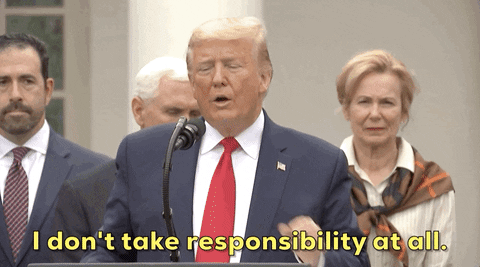Ray Dalio, the founder of Bridgewater Associates, reported that he believes that regulators in the United States would take control of Bitcoin if said crypto attains mainstream success.
I read that in an article this morning and it gave me pause. I’ve been following Bitcoin’s progress since 2012. I bought in the first time in 2016 and sold out around New Years of 2018, as the first bubble was popping. The person who turned me onto Bitcoin told me that eventually this thing would blow up so big that the governments of the world, led by the United States, would try unsuccessfully to regulate, control and when they realize they couldn’t do that, destroy it.
This was in 2012 when I was a taco-eating political economy student in university and my response was the same one I give to anti-vaxers, David Icke enthusiasts and Qanon conspiracy theorist nutballs. Relatively dismissive. Accompanied mentally by a “sure, buddy.” These folks could stand to make grandiose claims for a lot of the same reason the NDP (Canada’s centre-left socialist party) can make utopian claims about what happens if they’ll get elected—because we don’t live in fantasyland and it’ll never happen.
Fast forward a decade. Bitcoin’s up today to $48K, China’s kicked them out and El Salvador’s made Bitcoin legal tender. The guy who told me about bitcoin back in those days has vanished into legend—and presumably spends his days rolling around in his millions. If I could go back in time and tell myself what’s happened—well, I’d buy a shit-ton more bitcoin than I did—but I’d probably take a closer look at the NDP.
“I think at the end of the day if it’s really successful, they will kill it and they will try to kill it. And I think they will kill it because they have ways of killing it,” Dalio told Andrew Ross Sorkin Wednesday on CNBC’s “Squawk Box” at the SALT conference in New York.
But do they really?
Remembering back to some of those conversations, the only method that really stands out as viable is by buying up enough machines to effect a 51% attack, which would effectively take over the blockchain.
A 51% attack is when one principle owner takes control of more than 51% of the network. Bitcoin runs on a proof-of-work consensus mechanism, which means that a majority of node operators—now represented by big companies like Hut 8 Mining (HUT.T), Genesis Mining, and Marathon Digital Holdings (MARA.Q) to name a few—contribute mega electrical output to solving a cryptographic puzzle so they can verify the contents of the ledger and get rewarded in Bitcoin. A quorum of the nodes need to agree—hence, more than 50%.
If the United States were to take control of the Bitcoin ledger they would need to spend $1,779,443 an hour in electrical cost alone for a one-hour takeover of the Bitcoin blockchain, according to crypto51.app, a site constructed to give you an idea of what a 51% attack on various proof-of-work coins would cost.
That’s not including the buildout—and those ASIC rigs, the space to keep them, the electricity to cool them, and all the attendant operating costs, wouldn’t come cheap. Think billions of dollars in contracts out to chip fabricators, designers. And while we all know that the Fed absolutely loves to print money (or why would we need Bitcoin in the first place?) you’d think there would be a cutoff point. Someone has to have control of the purse strings, don’t they? Are there any responsible adults in the room?

Let’s assume for a second that the United States government develops some fiscal responsibility and doesn’t start spending billions of dollars chasing the economic version of the Vietnam War. That leaves regulation, which is honestly a far more responsible and reasonable option, and something that’s worthwhile looking at in-depth.
Here’s SEC chief Gary Gensler on a solid reason why:
“Currently, we just don’t have enough investor protection in crypto finance, issuance, trading, or lending. Frankly, at this time, it’s more like the Wild West or the old world of ‘buyer beware’ that existed before the securities laws were enacted.”
For most exchanges worth talking about nowadays, you need to show a shitty camera-phone snap of some accepted government identification. You e-mail it to the appropriate people who do their thing, whatever that is, and generally let you in. Sure. Except a driver’s license image or a snap of the appropriate page on your passport can be faked.
In meatspace, that’s harder to do. Especially for a passport. They’re encoded with tricky little secrets, chips, words, and other such things to protect against counterfeiting. I could take my wife’s passport, take pictures of it, import it into photoshop, insert my face and information and send it off and most folks would be none the wiser. There’s also the question of whether or not the majority of these exchanges would actually care, or if they’re just covering their asses, but that’s a question for a different day.
Regardless, the above measures taken against money laundering (the bare minimum when it comes to know-your-customer or anti-money laundering) are about it for widespread regulations on exchanges so far, and some don’t even go that far. So there’s definitely room for individual practices on exchanges and miners to be regulated, but the prospect here is the entire coin—the network, the asset, would be the target—and that’s silly.
The parsimonious approach
Since attacking the blockchain itself represents too much of a loss in terms of opportunity cost, then all you can really do is attack the access points. That would be exchanges and miners. Coinbase (COIN.Q) is gearing up for a dose of that from the SEC.
Here’s what I wrote in last weeks’ crypto sector roundup:
They received a notice of a potential enforcement action from the SEC about its interest-earning product, Coinbase Lend, which they were going to launch in the next few weeks. The product allows for users to earn a 4% yield on the USDC stablecoin by letting Coinbase lend it out to borrowers. This isn’t an uncommon tactic, as its used by companies like BlockFi and Gemini, which offers similar high yields on stablecoin and other crypto balances.
The company reached out to the SEC for a briefing prior to the launch, and the regulator’s response was that the Lend feature was a security. Um. What? Naturally baffled, Coinbase asked the SEC what the hell they were on, and the agency responded with a list of demands, because of course they did.
This kind of behaviour is going to have a few repercussions. Some public companies are going to go balls-to-the-wall on self-regulation, effecting draconian crackdowns that would make the leather-clad whipcrackers at the SEC blanch. Others are going to be chill and wait and see. And some, who may be perhaps disinclined to regulations for reasons that remain off the books, are going to either leave the country entirely, stay out of the country if they’re there, or go completely decentralized and take their centralized exchange into decentralized spaces.
Mining is where regulators could have the biggest effects—and frankly, it’s where they’re needed the most. In the United States alone, Riot Blockchain (RIOT.Q) is in Texas and Texas’ ancient power grid spits out carbon dioxide into the atmosphere. Ditto for the Chinese diaspora components which landed in Pennsylvania’s coal country.
For contrast, here’s the updated functional equivalent of Bitcoin’s cost per year: Finland.

Meanwhile, California, Colorado and parts of British Columbia deal with drought conditions. Florida, Puerto Rico, Louisiana and Texas are regularly dropkicked by category 5 hurricanes. We have a looming water scarcity issue, glaciers are shrinking, and it gets so hot in summer that folks in Riyadh thank Allah they don’t live here. Bitcoin is supposed to spit out coins every ten minutes until the year 2140.
That’s a long time from now. Given that bitcoin mining is basically a set-it-and-forget-it operation, it’s possible that miners may reach 2140, but we may not be around as a species to enjoy the perks.
Some companies are way ahead of the government in terms of self-regulation, but others aren’t quite so quick to get the memo. If the United States government wants to make a positive change to the way Bitcoin does things, they need to realize that you can’t beat it, but you can influence the way it does business.
—Joseph Morton







